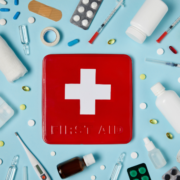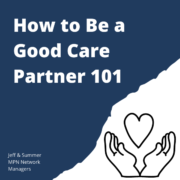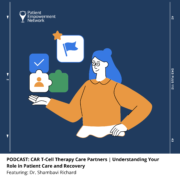Essential First Aid Tips For Cancer Caregivers
First aid is an essential skill — however, 70% of Americans feel unprepared for a cardiac emergency because they either don’t know how to administer CPR or their training has significantly lapsed. It’s important for caregivers of cancer patients to be trained in first aid, so they’re fully-prepared and ready to act in emergency situations. This includes knowing how to administer CPR, looking out for the common signs of infection, and helping patients manage the emotional symptoms of cancer.
Administering CPR
Chemotherapy damages healthy cells in the body, including cells in and near the heart. As a result, cardiac toxicity and conditions like arrhythmias (abnormal heart rhythms), congestive heart failure, cardiomyopathy (the heart struggling to send blood around the body), angina (chest pain), and myocarditis (inflammation of the muscular layer of the heart wall) can occur. In these situations, a cancer patient may need CPR, which, if unsuccessful, may need to be followed up with an AED (automated external defibrillator). An AED can help restart the patient’s heart and re-establish the natural rhythm of the heartbeat. First aid training is essential for anyone caring for cancer patients as it covers how to administer CPR correctly. Caregivers should also inform themselves of the patient’s resuscitation wishes in advance.
Preventing infection
Cancer and cancer treatment weakens the immune system, which in turn increases a patient’s risk of infection. Additionally, cancer patients can have a low white blood cell count (neutropenia), which further weakens the body’s ability to fight infection. Symptoms of infection to look out for in cancer patients can include: fever, sore throat, shortness of breath, belly pain, and chills potentially followed by sweating. In this case, caregivers should check the patient’s temperature with a thermometer, keep the patient hydrated, and help them take their medication on schedule. If the patient has a high or low temperature, can’t take fluids, or simply doesn’t seem “right,” take them to the emergency room and let the staff know they’re in treatment for cancer.
Emotional first aid
One third of all cancer patients experience high levels of mental or emotional distress that meets the strict diagnostic criteria for mental disorders, including depression or anxiety. As such, emotional first aid becomes an important part of caring for cancer patients and their emotional health. In particular, anxiety can result in shortness of breath, hyperventilation, and chest pain. It’s therefore essential to learn deep breathing techniques to help affected patients stay as calm and pain-free as possible. Alternatively, depression can manifest symptoms like low mood, irritability, insomnia, excess sleepiness, and suicidal thoughts. Be sure to familiarize yourself with the signs and symptoms of depression and begin an open dialogue with the affected individual to provide them with support and treatment if necessary.
First aid knowledge and skills are an essential part of caring for people with cancer. It’s important caregivers have the right first aid training, knowledge, and skills to help patients in emergency situations.










